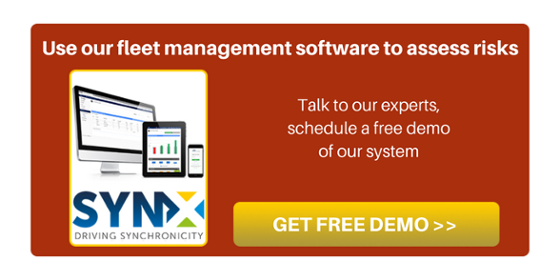
We have arrived at T for technology in our ongoing alphabet of fleet management. Although we are running out of letters, and therefore topics, there is still so much to discuss when it comes to fleets and managing vehicles.
Choosing T for technology wasn’t easy: we could have been more specific and picked T for telematics or tracking; both are crucially important to managing a successful fleet these days, but they are still only two aspects of technology in general.
When discussing fleet management technology, we are not only including the commercial products we offer to help fleets manage vehicles—saving money and keeping drivers and road users safe—we are also referring to a whole set of modern innovations that have a substantial impact on fleet management and on the logistics and transport sectors. Which ones, you might be asking? Let’s take a look!
#1 – IoT – the Internet of Things. The extension of Internet and its usage evolved into intelligent objects and applications (in our specific case, connected vehicles) that communicate between themselves. In 2020 –not long!–it has been estimated that there will be 26 billion objects connected at a global level, and vehicles are definitely on the list!
#2 – Big Data. Hand in hand with connected vehicles and the IoT is the concept of Big Data: a huge volume of unstructured information is now available for analysis, and vehicles are no exception. This data can be used to create information-driven products for vehicles or to enhance existing products or even fleet management and driver safety.
#3 – Driverless vehicles. What seemed just the fantasy concept from a 1980s TV series like ‘Knight Rider’ or a futuristic movie is now slowly (or not so slowly, depending the way you look at it) part of our daily lives. From Tesla to Google, driverless vehicles have the potential to revolutionise the way goods and people are conveyed around urban areas. The potential to eliminate collisions is now available like never before, as well as the means to reduce to an optimum the number of vehicles on the road and minimise their time on the road.
#4 - Mobility as a Service (MAAS). The term for the digital platforms (often smartphone apps) through which people can access a range of public, shared and private transport, using a system that integrates the planning, booking and payment. A market still in its infancy, but developed in response to the growing demand from users for transport to be delivered as an on-demand service that allows passengers to travel door-to-door conveniently and seamlessly. In theory, MaaS could reduce congestion, improve air quality through the decreased vehicle use, and improve users’ health by encouraging increased use of active modes of travel such as walking and cycling. Is having a vehicle, therefore, still a thing of the present or future?
These are probably the latest tech trends in the world of vehicles and technology. Manufacturers have worked effectively with significant technology organizations to produce the most exceptional, most comfortable and most secure vehicles out there—let’s see what the future holds for these four scenarios!


